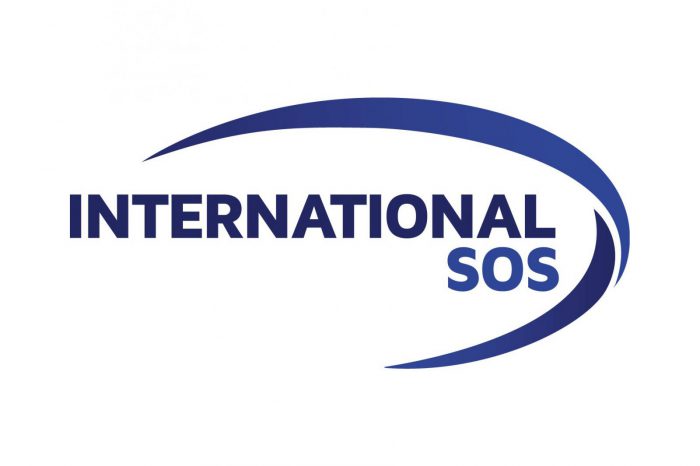Health and Safety Business Checklist


Identifying the Health Aspects that are Important
In Australia, employers are required by law to provide a high standard of safety and health at their workplaces and ensure, as far as practicable, that employees are not injured or harmed because of their work.
The same expectation applies to responsible companies operating in Africa.
Are you ready, willing and able to meet your obligations?
Key Health Considerations
Do you have a complete understanding of your Duty of Care to your expatriate and local employees as it applies to their health and safety? Are you meeting your obligation to mitigate “foreseeable” risks and threats employees encounter when working? Are you prepared that a failure in Duty of Care, whether by you – the operator, a partner or a contractor, will inevitably be attributed to your company? Are you aware of, and prepared to accept, the personal obligations on directors and company officers, including the potential for criminal sanction for breaches?
Are you a safety leader – or have you set your sights a bit lower? Have you documented a commitment to a culture of zero harm? Are you committed to the prevention of fatalities and serious injuries? Can you demonstrate a commitment to occupational health and hygiene in the workplace?
Have you established Health and Hygiene standards and practices to minimise health risks to employees, contractors and host communities? How do you promote wellness and healthy lifestyles for your expatriate and local employees? Do you senior expatriates lead by example or has familiarity led them to become complacent? Have you assessed the reputational risk and cost of failure arising from a single or multiple case of serious illness?
A recent International SOS report indicates that investment in prevention will more than pay for itself.
With the current levels of uncertainty and pressures in people’s lives, mental health awareness and emotional well-being is emerging as a pressing issue for individuals and organisations.
Increasing knowledge, accessing professional support, learning how to cope with psychological distress and being aware of the stress that others may be under can help greatly. Emotional support services can help your workforce in dealing with psychological issues while on-site and at home.
The single question for now is whether your employee well-being program addresses mental as well as physical health and if not, is this something that you need to put in place to deliver on your Duty of Care?
How confident are you that you have identified potential incidents and emergencies? Does your operation have an up-to-date emergency response plan? Was the plan developed in consultation with host government agencies and communities? Has the plan been communicated to employees, local government agencies and host communities? Do you have an adequate number of personnel with appropriate expertise who are trained and dedicated to respond to emergencies? Are skills level commensurate with the identified facility risks and hazards? Have you identified available the capacity and capability of external medical treatment facilities? Do you have a plan for medical evacuation to an off-site facility? If the plan is to evacuate off-shore, do you understand the required visa protocols and impact of COVID-19 related travel restrictions? Do you have support agreement in place with a competent medical evacuation service provider?
Have you thought about the higher burden of disease in your operating area? Malaria, HIV and communicable diseases such as tuberculosis and hepatitis? Addressing these health issues is essential in so far as ensuring a healthy workforce is concerned and are standard practices for responsible companies operating in Africa. Do you understand the prevalence of these diseases in your local workforce and host communities? If you have third-country national employees in your workforce does your pre-employment screening check for communicable diseases? Do you routinely monitor and report disease occurrences and trends? Can you be confident you are delivering on your Duty of Care? Is your in-country management team actively driving this agenda?
With respect to COVID-19 vaccination, do you know if you can make it mandatory for employees to have a COVID-19 vaccine and what can you do if an employee refuses to be vaccinated?
Where does your host country fit along the spectrum? High standard of medical facilities and emergency health response? Good level of medical facilities and treatment in most of country? Evacuation in event of medical condition or injury required? Medical insurance required for national staff to ensure access to quality medical services? Reliance on in-house resources for routine medical treatment and emergency health response? Necessary to take own medicines? Sale of counterfeit medicines common? Does the local health service have the capability to operate in the event of pandemic? Does the country have an effective communicable disease vaccination program?
Have you worked out how you will minimise the add-on to the existing burden on the population? Do you have a solid baseline understanding of pre-project health status and an understanding of the impacts your activities have on the health and well-being of your host communities? Are you actively working to dispel myths and misinformation regarding health impacts resulting from your activities? Are you set up to build on existing capabilities – collaborating with existing local governments, NGOs, and local health-focused agencies? Are you taking steps to reduce sexual exploitation of children? Do you have an effective peer-to-peer education program for both employees and community youth?
If you are in the design stage, what are you doing to eliminate, reduce and mitigate your impacts? Have you considered how physical structures and project-related activities will directly, indirectly and cumulatively change community exposures to environment-based health risks, communicable diseases, equipment accidents, and exposure to hazardous materials or conditions? If the company doesn’t have the expertise in-house, have you considered using specialised support or an independent review process to identify risks and solutions the project team might otherwise overlook?
Do you have a plan that addresses your travel and assignment safety, health and security needs? Is the plan in compliance with national laws and regulations in home, host and transit countries? Does the planning process cover the development, implementation and evaluation of the management of the travel and assignment safety, health and security system? Are employees kept informed about travel and assignment existing, new and emerging issues? Are you able to inform workers and dependents of developing situations and potential increased risk levels where they are travelling or where they are assigned (including access to a 24/7 reliable and timely information source)?
Are you tapping into the deep pool of African expertise and knowledge you could learn from? Have you spoken to the AAMEG team in Perth? AAMEG members providing Health Services in Africa? Other operators in-country? Key government ministries and health agencies in your host country?


Want to learn more about managing health in Africa?
If the questions have highlighted gaps in your health management or left you thinking you need to learn a bit more, you can dig a bit deeper by:
1. Contact an AAMEG member
2. Check out all resources
More business checklists...
Members that operate in the Health space







